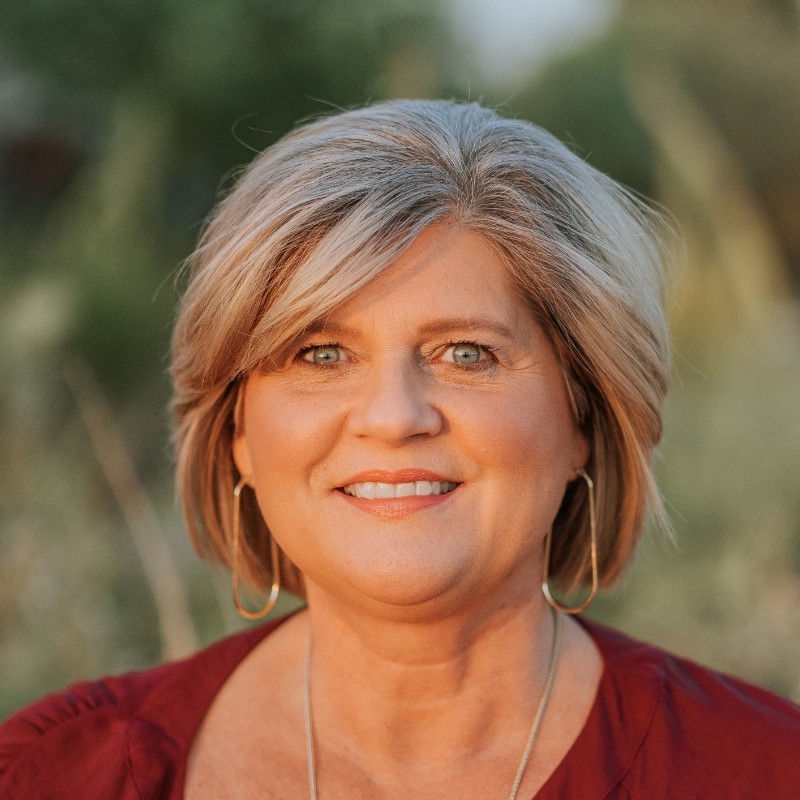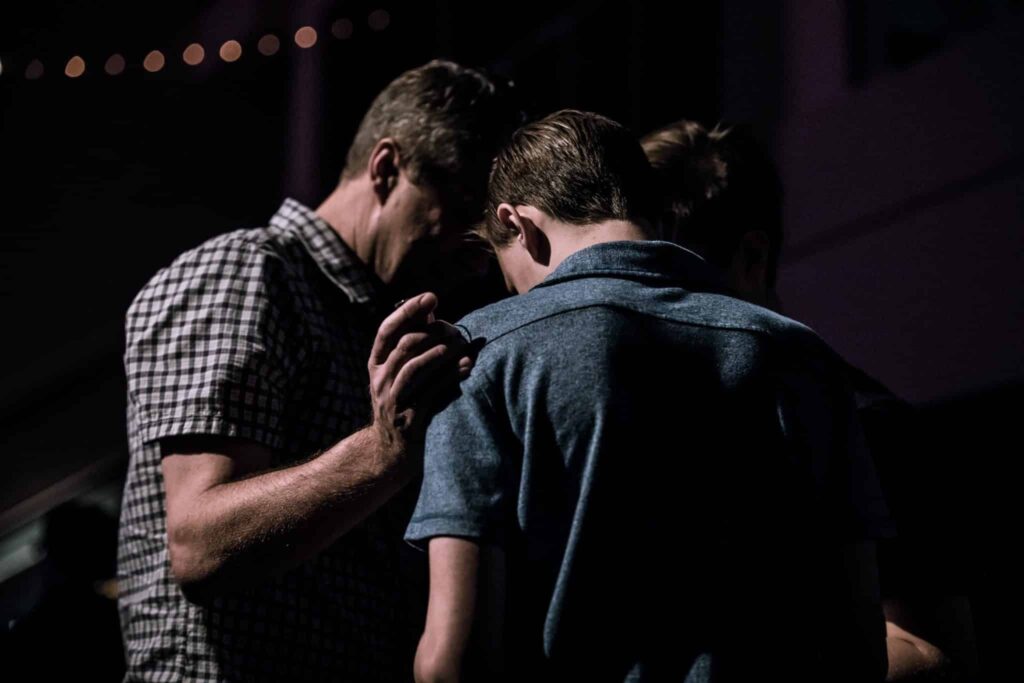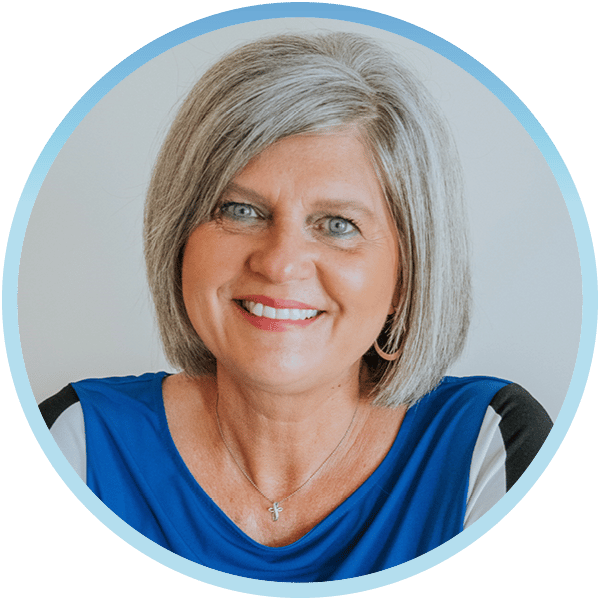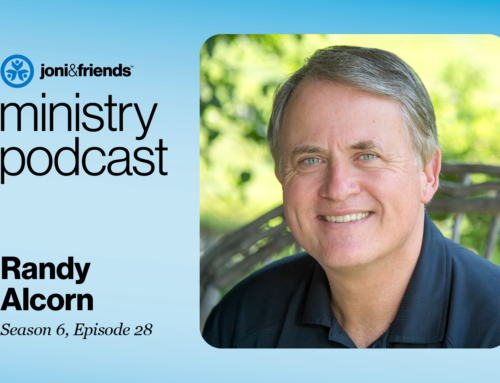The Caregiver’s Journey: Surviving to Thriving
Subscribe to the Joni and Friends Ministry Podcast
Susan Wahlers understands the exhaustion, loneliness, and discouragement that caregivers often face.
She joins the podcast to talk about the church’s role in caring for caregivers, and how caregivers can go from surviving to thriving as they lean on God and the body of Christ.
When Susan’s husband Dave was diagnosed with Alzheimer’s disease at 55, their life went into disarray and caregiving became consuming for Susan.

After Dave’s passing in 2019, Susan founded Makers of Care, a nonprofit that provides resources and support for caregivers, and equips churches to proactively serve them.
When asked why she founded Makers of Care, Susan pointed to things she didn’t know when she began her own caregiving journey. From the beginning, when Dave got diagnosed with Alzheimer’s disease, Susan discovered a gap…the space between diagnosis and death. While doctors offer information about the disease, they don’t (and can’t) tell you how to live in your new reality.

After seeing Dave to the end of his life, Susan began getting calls from other caregivers; they had questions for her.
They had stories to tell. They wanted someone to help them cope and tell them they would be able to endure—someone who understood. They needed advocacy training, support, and encouragement.
Advocacy Advice
Susan learned about the need for advocacy the hard way.
She shared:“When I placed my husband into a care facility, we didn’t receive really good care. In fact, there were lots of things that happened to my husband physically because of the lack of care. That was a difficult thing to take care of. I was going to the Lord in prayer and saying, ‘God, I don’t like this. How do we change this?’”
Her key takeaways for medical advocacy?
- Be the voice of your loved one who can’t speak.
- Get organized.
- Make notes and goals for each medical appointment.
- Use patient portals or other available means to communicate with doctors.
- Ask questions.
- Don’t make assumptions—when in doubt, ask!
How can churches support caregivers?
As a caregiver Susan tried secular support groups but missed Christ as the center of the conversations. Now she comes alongside churches to advocate for better Christ-centered support for caregivers.
One challenge Susan has found in many churches is lack of awareness about the presence and needs of caregivers.
Why? Many caregivers don’t think of themselves in those terms; people often give care to loved ones without identifying themselves as caregivers. Caregiving comes up in organic, informal ways.
Another barrier Susan finds is overwhelmed pastors and church leadership.
While leaders want to care for caregivers, their schedules are already full, and budgets stretched. And in American churches, many people come to church to receive something—hear a sermon, have an experience—not to give back to the body of Christ by seeing to the needs of others.
But Susan points to a different vision of the church in the book of Romans:
“For just as each of us has one body with many members, and these members do not all have the same function, so in Christ we, though many, form one body, and each member belongs to all the others. We have different gifts, according to the grace given to each of us. If your gift is prophesying, then prophesy in accordance with your faith; if it is serving, then serve; if it is teaching, then teach; if it is to encourage, then give encouragement; if it is giving, then give generously; if it is to lead, do it diligently; if it is to show mercy, do it cheerfully.”
Romans 12:4–8
This passage shows that every person has a place and function in the body of Christ.
In a church, we can ask people to be active about seeing and meeting one another’s needs. People may not want to ask for help or know what they need. When in doubt, she says, reach out to somebody if you think they may have a need—plan a visit, make a call!

“Let the Holy Spirit be creative through you. Offer to do something for a person instead of asking if they need help.” Susan says and, “Respite, respite, respite!”
For caregivers across the board, respite comes up as a top unmet need. So offer respite: the opportunity to take a nap, a walk, a trip to the grocery store. Step into the person’s home and see what needs to be done.
The Caregiver’s Journey
For caregivers themselves, Susan encourages learning about the stages of the caregiver’s journey.
- Stage 1: The Expectant Caregiver—In the near future, I may help an aging relative. This, Susan says, is a stage of questions. It’s a good time to talk to a loved one about their wishes and prepare necessary paperwork.
- Stage 2: The Freshman Caregiver—I am starting to help an aging relative. Susan calls this a stage of experimentation and research (thank you, YouTube and Google!).
- Stage 3: The Entrenched Caregiver—I am helping. Susan calls this “the thick of it.” Life gets chaotic and caregivers need support, strength, and resources—it’s time to receive!
- Stage 4: The Pragmatic Caregiver—I am still helping an aging relative. For Susan, this stage brought awareness that joy and sorrow go together. She found space to recognize God’s involvement.
- Stage 5: The Transitioning Caregiver—My role is changing. It’s time to accept that closure is coming; make space to grieve as you prepare to usher your loved one into eternity.
- Stage 6: The Godspeed Caregiver—My caregiving has ended. Time to treasure memories and look to new beginnings.
In watching Dave decline, and progressing through her own caregiver’s journey, Susan found encouragement in Scripture. In particular 2 Corinthians 4:16:
Therefore we do not lose heart. Though outwardly we are wasting away, yet inwardly we are being renewed day by day.
Day in and day out, at every stage of the journey, Susan poses two questions to caregivers as reminders that God is present:
- Where is God in your story?
- Where are you in God’s story?
If you are a caregiver, Susan also has a message for you:
“I see you. We hear you. We care for you. You’re not alone. God hasn’t forgotten about you. There is purpose in what you’re going through—purpose in the pain. And God is telling his story through your story.
Keep your heart eternally focused. This is not where we’re going to end up. Focus on who Christ is. He will show you glimpses of his glory throughout the journey of caregiving. Finally, like my husband said after his diagnosis, make it count because Christ is worth it.”

Makers of Care
If you are a caregiver in need of support or strategies, get help today through support groups, workshops, and church resources.








